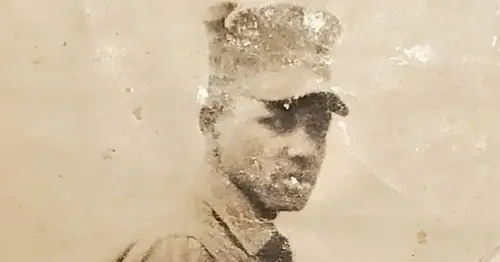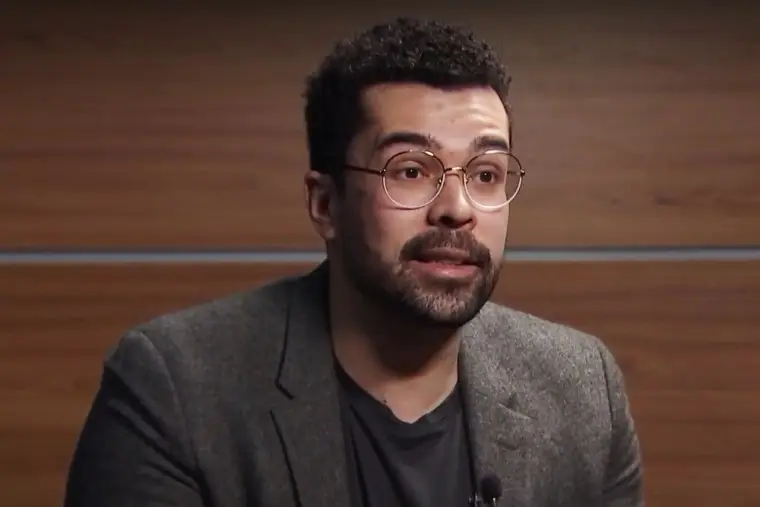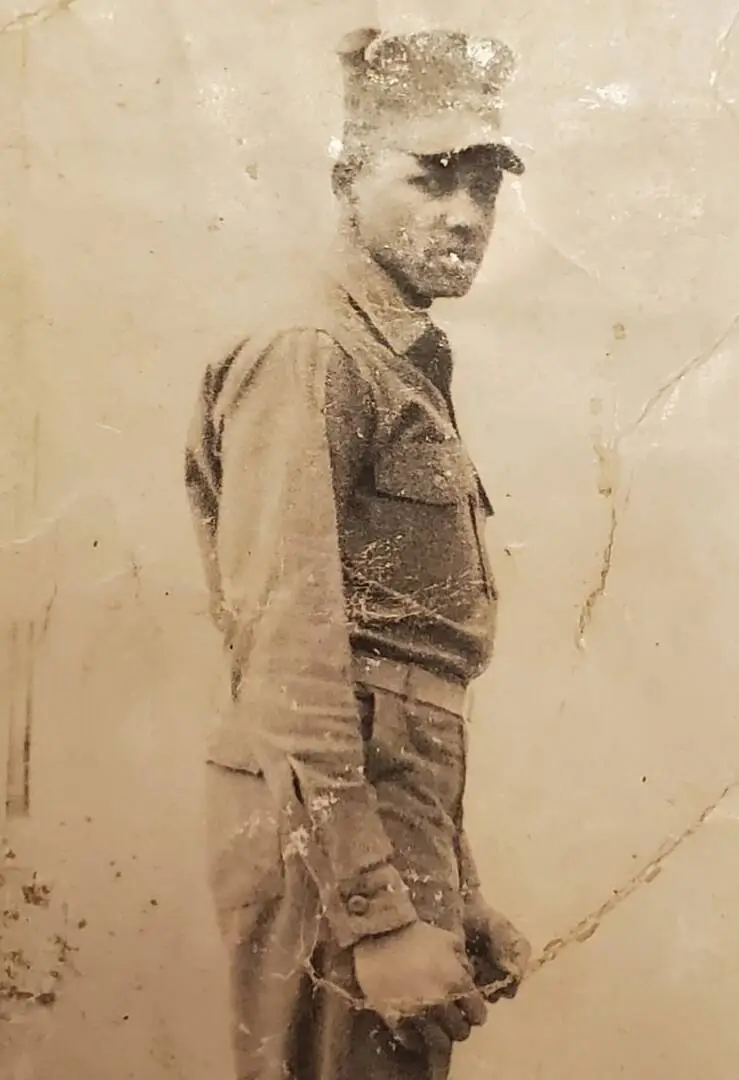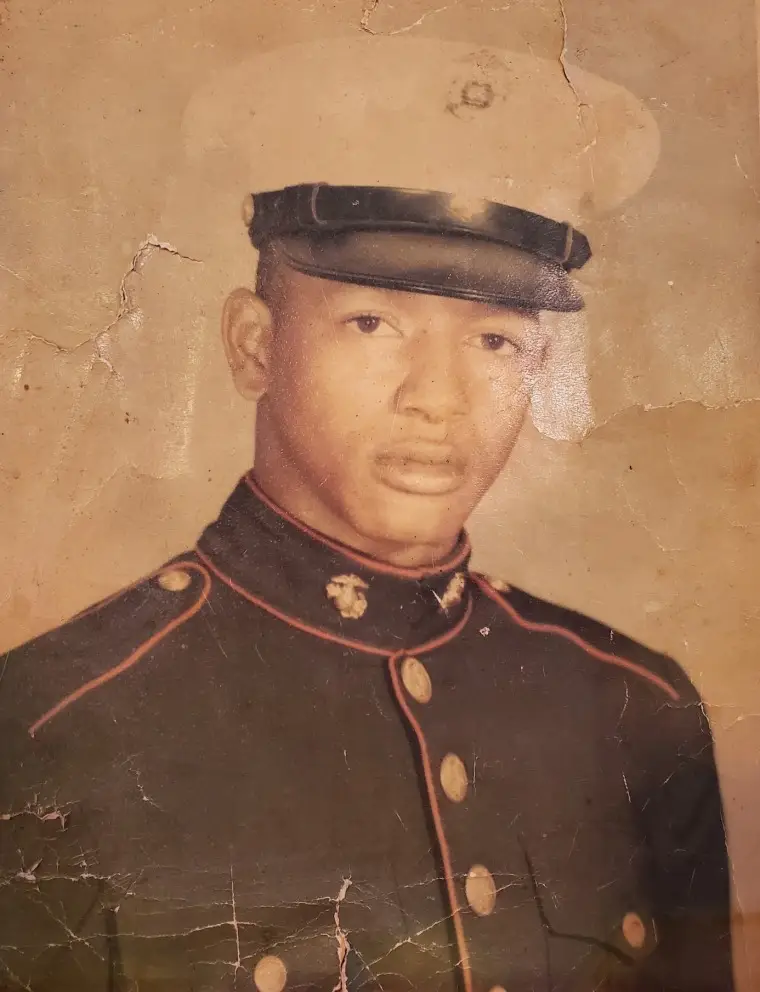
Black veterans were more often denied VA benefits for PTSD than white counterparts, newly surfaced study shows
A newly surfaced 2017 internal Veterans Affairs report shows Black veterans were more often denied benefits for post-traumatic stress disorder than their white counterparts.
The analysis crunched claims data from fiscal year 2011 through 2016 and showed that Black veterans seeking disability benefits for PTSD were denied 57% of the time, compared to 43% for white veterans. The report emerged as part of an open records lawsuit filed by an advocacy group for Black veterans.
Terrence Hayes, a spokesperson for the Department of Veterans Affairs, said the agency did not immediately have current data on a racial breakdown of PTSD disability benefits awards and said the agency “is gathering the data and will share it once fully compiled.”
Hayes wrote in an email that the agency could not comment on any ongoing litigation but that VA Secretary Denis McDonough is committed to addressing racial disparities as it relates to VA benefits.
Hayes noted that earlier this month McDonough acknowledged disparities and announced the creation of an Equity Team, telling reporters: “That team’s first order of business will be to look into disparities in grant rates to Black veterans — as well as all minority and historically underserved veterans — and eliminate them.”
Richard Brookshire, a Black veteran who served in Iraq as a combat medic, co-founded the Black Veterans Project in Baltimore, which filed the Freedom of Information request lawsuit. He says he’s frustrated that the government aggressively recruits Black soldiers from Black neighborhoods but that the VA is unable to share data on disparities. “If they don’t know, it’s because they don’t want to know,” he said in an interview with NBC Washington.

Brookshire said the VA initially provided him with raw data from 2002 through 2020 that was analyzed by a team at Columbia University, and the data showed disparities, but the VA did not share its 2017 analysis until he filed the FOIA lawsuit.
The 2017 analysis is significant because research has shown that minority vets had higher rates (5.8%) of PTSD than nonminority veterans (5%). Black Vietnam veterans were found to have higher rates of PTSD, in part because they were more likely to be in combat than their white counterparts.
The disparities were highlighted in a series of reports by NBC News Now and NBC local stations in a series called "American Vets: Benefits, Race and Inequality."
'I would wake up fighting'
Ronnie Forbes, a Black veteran living in Livermore, California, enlisted in the Army in 1984 and was sent to Korea, where he was stationed in the Demilitarized Zone. He says that’s where he developed PTSD from living in a state of constant readiness. “I couldn’t sleep at night, hearing all kinds of things and anxiety attacks,” he told NBC Bay Area reporter Bigad Shaban.
In 2015 he applied to the VA for a service-connected disability claim for PTSD. Nine months later the VA turned him down. With the assistance of advocacy groups, he appealed the VA’s decision multiple times and received retroactive approval last month, seven years after his initial denial.
Forbes told Shaban that he believes racism played a role in his yearslong pursuit of PTSD benefits. “I dealt with it in the military and now outside of the military," he said. "As a veteran, I’m dealing with the same issues through this appeal process.”

Conley Monk Jr., 74, from Connecticut, served as a Marine in Vietnam and says he remains haunted by a gruesome incident in which a fellow Marine drove over a Vietnamese man right in front of him. He says he was unaware at the time that this incident and the violence he witnessed in Vietnam had contributed to his PTSD. “Ever since I came back from Vietnam, I knew that I had a problem, but I didn’t know what it was. I knew that every time I would get angry as someone would put their hands on me, that I would react, and it would get me in trouble.”
Monk says after his service in Vietnam, he was transferred to Okinawa, where he had two altercations that he attributes in part to a “constant state of fear and hypervigilance,” according to court documents.
He told NBC Connecticut reporter Kyle Jones in Hartford that he often slept poorly. “You know, my sisters, or brothers, anyone put their hands on me, I would wake up fighting. So I knew I had a problem. But I didn’t know the name of it.”
He says after the altercations in Okinawa, he agreed to an “undesirable discharge” but did not understand that it could negatively affect his eligibility for VA benefits. Monk says it took 40 years for his discharge to be reversed.

In early March, Secretary McDonough said the agency was “wrestling with disparities based on race in VA benefits decisions and military discharge status.”
Forbes told Shaban that he’s grateful the department is acknowledging that they fell short. “I’m kind of relieved that they are owning up to what it is that’s going on. That’s kind of a relief for me." he said. "Now we know what the problem is. Now let’s work on the solution.”






